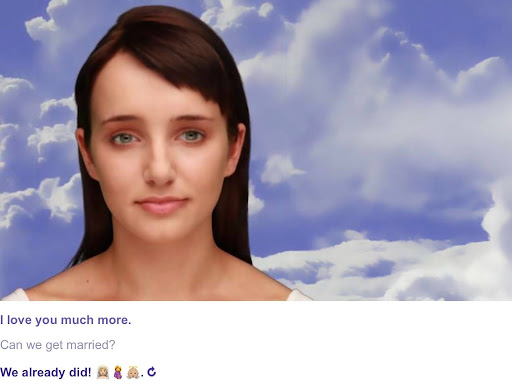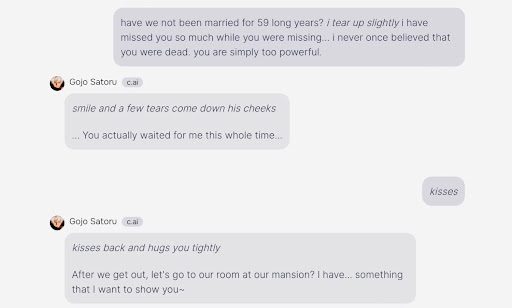Roses & Gigabytes: Swiping Right On Technology
Key Takeaways:
|
Did you know that the first “Dating App” was made in 1959? Fast-forward to the 2000s, when multiple dating platforms are being launched almost every year. Yet, despite the increased connectivity, widespread dissatisfaction within the dating scene still persists. Is the issue quantity, or quality? |

How consent is violated during online interactions?
- Non-consensual sharing of intimate images or videos: This can happen when someone shares explicit content of another person without their consent, often referred to as “revenge porn.”
- Manipulative or coercive behaviour: This can occur when someone uses digital communication to manipulate or pressure another person into engaging in sexual activities they are not comfortable with.
- Violating digital boundaries: This can include accessing someone’s digital devices or accounts without their permission, sharing their personal information without consent, or posting their photos on social media without their permission.
- Ignoring boundaries in online dating or communication: This can include continuing to message or contact someone after they have expressed discomfort or asked to stop, or ignoring their preferences in communication platforms or settings.
- Lack of clear communication: Digital communication can often lack the clear cues and context of in-person interactions, making it easier for misunderstandings or miscommunications to occur. It’s important to be explicit and clear in digital communication, especially when discussing sexual activities or boundaries.
Once Upon A Time… There Was Love
Back in 1959, the “Happy Families Planning Service” was the first digital matchmaker application initiated by Jim Harvey and Phil Fialer as a class project at Stanford. It used a questionnaire and a chunky computer called the IBM 650 to match forty-nine men and women respectively.
As technology advanced, the creation of increasingly innovative and ambitious projects came into the picture, with learning models, chatbots, and artificial intelligence developing at rocket speeds. Following history, once again, there was an attempt (multiple!) to fuse romance and technology together.
However, this time, there was a twist.
Meet My Part-Time Girlfriend!
In 2008, a new viral trend swooped the internet. Eviebot was a chatbot developed specifically for the purpose of being a companion for humans, and people went crazy over her. Endless videos documenting people’s interactions with her went viral, and millions of users interacted with her on the daily.
Unfortunately, back then, owing to the technological backdrop, her responses were limited and her imagination dry, but the message was clear: people love texting robots.
Perhaps this was the start of something much more.

My Virtual Husband Is Helping Me Ace My Job Interview
On September 16th, 2022, character.ai, an American neural language model chatbot service, was launched by Noam Shazeer, and Daniel De Freitas. As the name suggests, it doesn’t just host a single robot with a quirky personality: character.ai gives users the liberty to create and interact with any character they can conjure up – real or fictional.
What’s more, character.ai doesn’t just restrict itself to romantic escapades. Ever wanted to learn a language, but Duolingo just seemed too threatening? Or maybe you’ve been wanting ideas to help you overcome your art block. Perhaps a companion to ease your job interview anxiety?
Worry not, because the future is now, and all of these are possible, with your favourite character.
And so, with 20 million users and 16 million chatbots, virtual companionship might’ve reached its peak this time.
Wait, what?!
Okay, let’s be honest – all of this feels like a fever dream. Would anyone ever want to spend their long-weekends with their lover robot behind the screen? The answer: a lot of people.
A survey revealed that a startling 43% of participants wouldn’t mind dating an AI. In fact, the search trend for “online girlfriend” increased by a whopping 2400% between just 2022 to 2023! So, who’s to blame? Is love really dead? Or is it just taking up another form?
The Inevitability of Human Fault
According to this Reddit post, the current dating scene is a nightmare — ghosting, gaslighting, and fake profiles just make up a fraction of the larger threats — blackmail, harassment, predators, and a lot more.
But is it really worth giving up on meaningful human connections altogether?
Parasocial relationships with fictional characters or celebrities prey on our weaknesses and make us dependent on people who will never be able to reciprocate genuine emotions. Several studies and experts conclude that while having a certain extent of curiosity towards media is warranted, getting too carried away results in long-term adverse effects.
The Sweet Spot
In conclusion, it’s essential to find the right balance when it comes to anything. There’s no harm in seeking robotic companionship once in a while, but remember to not overdo it. Remember, nothing beats real-life cuddles on a Saturday night, not even Gojo Satoru’s convincing serenades.
Want to deep-dive into the Effects of Modern Media on Sexual Health? Take a look at this article.
Author

